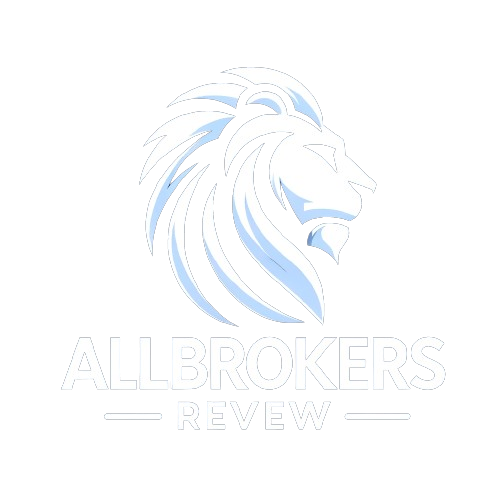As a novice investor, it can be challenging to navigate the complicated world of brokerage. Unfortunately, some brokers operate under false pretenses and scam investors out of their hard-earned money. Fortunately, there are warning signs we can look out for to identify unreliable brokers and avoid falling victim to their schemes.
In this section, I will provide an overview of the signs of a scam broker and offer tips for recognizing red flags in brokerage firms. By the end of this article, you’ll have a better understanding of how to protect your investments and choose trustworthy brokers.
Key Takeaways
- Knowing the signs of a scam broker is crucial for protecting your investments
- Look for red flags such as lack of transparency, poor customer support, and unrealistic promises
- Conducting due diligence before choosing a broker can help identify potential scams
- Unregulated or offshore brokers can pose a higher risk for scamming investors
- Account security measures and transparent fees are indicators of a trustworthy broker
Understanding the Risks of Scam Brokers
As an investor, it’s crucial to be aware of the risks associated with scam brokers. There are numerous red flags and warning signs to look out for when dealing with brokerage firms. By recognizing these signs early on, you can save yourself from potential losses and protect your investments.
One common red flag is the lack of regulatory compliance. If a broker is not fully licensed or registered with the appropriate regulatory bodies, it’s a warning sign that they may not have your best interests in mind. Another warning sign is the lack of transparency in fees and charges. A fraudulent broker may try to hide extra fees or charge exorbitant prices for services that should be standard.
Other red flags for broker scams include unrealistic promises and guarantees, poor customer support and communication, negative reviews and reputation, unregulated or offshore brokers, lack of account security measures, and unusual trading practices and manipulation.
Investors must be careful when choosing a broker, and it’s important to conduct thorough due diligence and verification before making any decisions. By keeping an eye out for these red flags and warning signs, you can ensure that you’re working with a legitimate and trustworthy broker.
Regulatory Compliance and Licensing
As an investor, it’s essential to pay close attention to a broker’s regulatory compliance and licensing information. Brokers that operate without valid licenses or regulatory oversight are likely to be unreliable and potentially fraudulent.
One way to identify unreliable brokers is to check their regulatory status. You can do this by visiting websites like the Securities and Exchange Commission (SEC) or the Financial Industry Regulatory Authority (FINRA). These regulatory bodies maintain databases of registered investment advisors and broker-dealers.
You can also look at a broker’s licensing information to determine if they are properly registered to provide investment services. This information is typically available on a broker’s website or through a regulatory authority’s website.
By taking the time to verify a broker’s regulatory compliance and licensing, you can protect yourself from potential scams and fraud. Remember that reliable brokers will always comply with regulatory requirements and provide clear licensing information to their clients.
Lack of Transparency in Fees and Charges
As investors, we all want to know how much we’re paying for the services we receive from our broker. However, some fraudulent brokers intentionally make it challenging to understand their fee structure to take advantage of unsuspecting investors. This lack of transparency should serve as a significant red flag.
One of the most common ways that fraudulent brokers deceive investors is through hidden charges and fees. They may obscure their costs with complex jargon or lengthy terms and conditions. Other deceptive practices may include charging unwarranted fees or increasing fees mid-trade without prior notification. These irregularities can lead to significant financial losses and result in mistrust of brokerage firms in general, which is why it’s vital to spot these fraudulent practices before investing.
One way to avoid this type of brokerage firm is by researching fees and expenses upfront. Reputable brokers will have a clear and concise fee structure that is readily available to investors. If you find a broker that is vague or unresponsive when it comes to describing their fee structure, it’s best to consider other options. A reputable broker will always be transparent about their fees and expenses and provide a complete and easy-to-understand overview for their clients to make informed decisions.
Remember to always be cautious when dealing with a broker that has unclear or misleading fees and fee structures. Being able to spot the subtle signs of a fraudulent broker is essential to minimizing risk and investing in a reputable and trustworthy brokerage firm.
Unreasonable Promises and Guarantees
As I mentioned earlier, fraudulent brokers often lure in investors by making unrealistic promises and guarantees. Such promises may include guaranteed returns or high-profit margins, which are too good to be true. These characteristics exhibit the greed and lack of transparency that define scam brokers.
It is essential to keep in mind that no investment is 100% secure, and high returns come with high risks. Therefore, if a broker is claiming to have a secret recipe for guaranteed profits, it’s probably a red flag.
Furthermore, some dishonest brokers might offer temptingly high leverage ratios, which make it seem like investors can make a fortune in no time. However, these high leverage ratios come with high risks, which investors may not be aware of. Ultimately, the broker benefits from these risks by charging higher fees, thus conserving their bottom line.
If a broker is promising you the moon and stars, take a second opinion, research their background, and stay cautious of fraudulent broker characteristics, in general. Do not be an easy target for broker scams.
Poor Customer Support and Communication
When it comes to choosing a broker, good customer support and communication are essential. Brokers who fail to maintain clear communication channels with their clients or do not provide adequate support can be a sign of an unreliable broker. It is important to be able to contact your broker easily and receive timely responses to any queries or concerns.
If your broker is vague or evasive in their responses, it could be a red flag. A trustworthy broker will provide clear and concise answers to all your questions, ensuring you have all the necessary information before making any investment decisions.
Furthermore, brokers who fail to provide adequate support can also be a sign of an unreliable broker. It is important to have access to knowledgeable and helpful representatives who can assist you with any issues you may encounter.
By identifying unreliable brokers who lack the necessary communication channels and customer support, you can avoid potential risks and safeguard your investments.
Negative Reviews and Reputation
When it comes to assessing the reliability of a brokerage firm, negative reviews and a poor reputation can be a major red flag. If a brokerage firm has a history of complaints, it’s likely that something may be amiss.
Spotting negative reviews and researching the reputation of a brokerage firm can help you avoid fraudulent brokers and protect your investments.
One way to identify negative reviews is to conduct a quick online search for reviews and feedback from other investors who have used the brokerage firm’s services. Reading through reviews from multiple sources can give you a more well-rounded overview of the broker’s reputation.

It’s important to note that not every negative review or complaint against a brokerage firm is necessarily a red flag. However, if there are many repeated complaints about the same issues, such as difficulty withdrawing funds or unexplained fees, it’s worth investigating further.
Additionally, researching the broker’s reputation can give insight into their history and track record. A reliable and trustworthy brokerage firm will have a good reputation in the industry, while a fraudulent broker is likely to have a poor reputation and documented history of misconduct.
Tips for spotting negative reviews and researching a brokerage firm’s reputation:
- Look for patterns in the negative reviews to identify recurring issues or complaints
- Check the brokerage firm’s ratings on reputable financial websites or agencies, such as the Better Business Bureau or FINRA
- Ask for recommendations or reviews from other experienced investors in your network or on financial forums
Unregulated or Offshore Brokers
Dealing with unregulated or offshore brokers can be very risky. These types of brokers often lack transparency, and it can be difficult to identify fraudulent practices. However, there are some red flags that can help you identify unreliable brokers.
How to Identify Unreliable Brokers
The first step is to check the regulatory status and licensing information of the broker. An unregulated broker is not held accountable to any regulatory body, which can increase the risk of fraudulent practices. Additionally, brokers that operate in less reputable jurisdictions may also be more likely to engage in fraudulent practices.
Another red flag is a lack of transparency in the broker’s operations. Unreliable brokers may not disclose important information about their fees, charges, or trading practices, making it difficult to make informed investment decisions.
Finally, it’s important to do your due diligence by researching the broker’s reputation and reading reviews from other investors. Unreliable brokers may have a negative reputation or a history of poor customer support, which can be a warning sign that you should avoid doing business with them.
Lack of Account Security Measures
When it comes to choosing a broker, one of the most critical aspects you must consider is their account security measures. These measures are an indication of a trustworthy and reliable broker. On the other hand, inadequate security measures are red flags, hinting at the possibility of a fraudulent broker.
Brokers that lack account security measures may not be fully committed to protecting their clients’ investments. They are more susceptible to cyber threats, including hacking, phishing, and identity theft, which can lead to significant financial losses for their clients. As such, spotting this red flag and avoiding such brokers is essential in safeguarding your investments.
Some account security measures that reliable brokers implement include multifactor authentication, strict password policies, and encryption technologies. Multifactor authentication is a process that requires users to provide two or more forms of identification before accessing their accounts. Such measures are designed to help secure your account against unauthorized access.
Remember: a broker’s commitment to protecting their clients’ investment through account security measures is a vital aspect to consider when choosing a broker.

Examples of Adequate Account Security Measures
| Account Security Measures | Description |
|---|---|
| Multifactor Authentication | A Process that requires users to provide two or more forms of identification before accessing their accounts. |
| Strict Password Policies | A requirement for users to create strong, unique passwords that they change regularly. |
| Encryption Technologies | Ensuring the user’s data, including login information, personal data and financial transactions are secure and inaccessible to third parties. |
Unusual Trading Practices and Manipulation
Fraudulent broker characteristics often involve unusual trading practices and potential manipulation of trades. As an investor, it is crucial to be aware of these red flags to avoid falling victim to fraudulent activities. Here are some examples:
- Excessive Trades: Brokers who insist on executing trades more frequently than necessary may be manipulating your investments for their own gain.
- Churning: Some brokers may engage in excessive buying and selling of securities in your account to generate commissions without regard for your investment objectives.
- Insider Trading: Unscrupulous brokers may use insider information to manipulate the markets or engage in illegal insider trading activities.
Be wary of brokers who engage in these activities and always do your due diligence to protect your investments.
Verification and Due Diligence
When it comes to choosing a broker, conducting verification and due diligence is essential. These processes allow you to recognize red flags in brokerage firms, ensuring that you don’t fall prey to a fraudulent broker.
One important aspect of verification is checking a broker’s accreditation and licensing. A reputable broker will have all the necessary licenses and accreditation, which you can verify on their website or by contacting the relevant regulatory bodies. Additionally, it’s crucial to ensure that the broker operates in a reputable jurisdiction.
Another crucial step is researching the broker’s track record and reputation. This can be done through online reviews, by checking their website, and by talking to other investors. If a broker has a history of unethical practices, it’s definitely a red flag.
Finally, it’s important to be aware of any fees or charges up front. A fraudulent broker may withhold or obscure fees until it’s too late. By doing your due diligence, you can make an informed decision while avoiding any nefarious broker practices. By doing this, you can rest assured that your investments are safe and secure.
Conclusion
As a financial journalist, I know how important it is to be able to recognize the signs of a scam broker easily. By staying vigilant and looking out for red flags, investors can protect themselves and their investments in the finance world.
In this article, I have discussed the risks associated with scam brokers, highlighted some common red flags, and provided tips on how to identify unreliable brokers based on factors such as regulatory compliance, lack of transparency, poor customer support, negative reviews, and unusual trading practices.
It’s crucial to conduct proper verification and due diligence before choosing a broker, and always be wary of promises and guarantees that seem too good to be true. Remember that unregulated or offshore brokers can be particularly risky, and be sure to look for brokers with secure account measures and a solid reputation.
By keeping these tips in mind, investors can navigate the finance world safely and confidently, avoiding fraudulent brokers and making informed decisions about their investments.
FAQ
What are the signs of a scam broker?
Some signs of a scam broker include lack of regulation or licensing, lack of transparency in fees and charges, making unreasonable promises and guarantees, poor customer support and communication, negative reviews and reputation, operating as an unregulated or offshore broker, lack of account security measures, unusual trading practices and manipulation, and inadequate verification and due diligence processes.
How can I recognize red flags in brokerage firms?
You can recognize red flags in brokerage firms by looking out for signs such as regulatory non-compliance or lack of proper licensing, lack of transparency in their fee structure, making unrealistic promises or guarantees, providing poor customer support and communication, negative reviews and a questionable reputation, operating as an unregulated or offshore broker, not implementing proper account security measures, engaging in unusual trading practices or potential manipulation, and having inadequate verification and due diligence processes.
Why is regulatory compliance and licensing important when dealing with brokers?
Regulatory compliance and licensing are important when dealing with brokers because they ensure that the broker operates within the legal framework and adheres to industry standards and regulations. It provides a level of protection for investors and helps establish trust and transparency in the broker-client relationship. Brokers who are regulated and licensed are more likely to operate ethically and protect the interests of their clients.
What are the risks associated with scam brokers?
Scam brokers pose several risks, including financial loss, identity theft, fraudulent activities, and manipulation of trades. Investors may lose their investments or funds due to unethical practices such as unauthorized withdrawals or failed trading activities. Additionally, scam brokers may misuse or sell investors’ personal information, leading to identity theft or other fraudulent activities.
How can I spot a scam broker based on their lack of transparency in fees and charges?
A lack of transparency in fees and charges can be a red flag for a scam broker. If a broker is not clear or upfront about their fee structure, including commissions, spreads, and other charges, it may indicate that they are trying to hide additional costs or engage in unethical practices. Investors should always review and understand the fees and charges associated with a broker before investing.
What are some characteristics of fraudulent brokers in terms of their promises and guarantees?
Fraudulent brokers often make unreasonable promises and guarantees to attract investors. They may guarantee high returns with minimal risk, claim to have insider information or special trading strategies, or promise guaranteed profits. These exaggerated claims and unrealistic guarantees should raise red flags as legitimate brokers cannot guarantee investment results and risk-free returns.
How can poor customer support and communication indicate an unreliable broker?
Poor customer support and communication can indicate an unreliable broker as it reflects their lack of commitment to their clients. If a broker is unresponsive to inquiries or concerns, provides misleading or incomplete information, or fails to address client issues promptly and effectively, it may indicate that they are not trustworthy or capable of providing a satisfactory level of service.
How can negative reviews and reputation help identify a fraudulent broker?
Negative reviews and a poor reputation can be warning signs of a fraudulent broker. If a brokerage firm has a history of complaints, legal actions, or negative reviews from multiple investors regarding their services, it indicates a lack of trustworthiness and credibility. It is important to research and consider the reputation of a broker before engaging in any financial transactions with them.
Why should I be cautious of unregulated or offshore brokers?
Unregulated or offshore brokers pose higher risks for investors. Without proper regulation and oversight, these brokers may operate without adhering to industry standards, making them more susceptible to engaging in fraudulent activities. Investors may have limited legal recourse, and their funds may not be adequately protected. It is advisable to choose brokers who are regulated and licensed by reputable authorities.
What are some red flags that suggest a fraudulent broker due to a lack of adequate account security measures?
A lack of adequate account security measures can be a red flag for a fraudulent broker. Signs to watch out for include their failure to implement two-factor authentication, encryption protocols, secure payment gateways, and segregated client accounts. Brokers who do not prioritize account security may put investors’ funds and personal information at risk.
How can I recognize unusual trading practices and potential manipulation by a fraudulent broker?
Unusual trading practices and potential manipulation can be recognized by observing irregularities in trade execution, unexpected slippage, frequent requotes, sudden price spikes, or a consistent pattern of trades that seem to work against the investor. These practices may indicate that the broker is manipulating trades to the disadvantage of their clients, potentially siphoning funds or manipulating market conditions.
Why is verification and due diligence important when choosing a broker?
Verification and due diligence are important when choosing a broker as they help ensure the legitimacy and credibility of the broker. By conducting thorough verification and due diligence, including researching their license, regulatory status, and reputation, investors can mitigate the risk of falling victim to scam brokers and make informed decisions based on reliable information.





